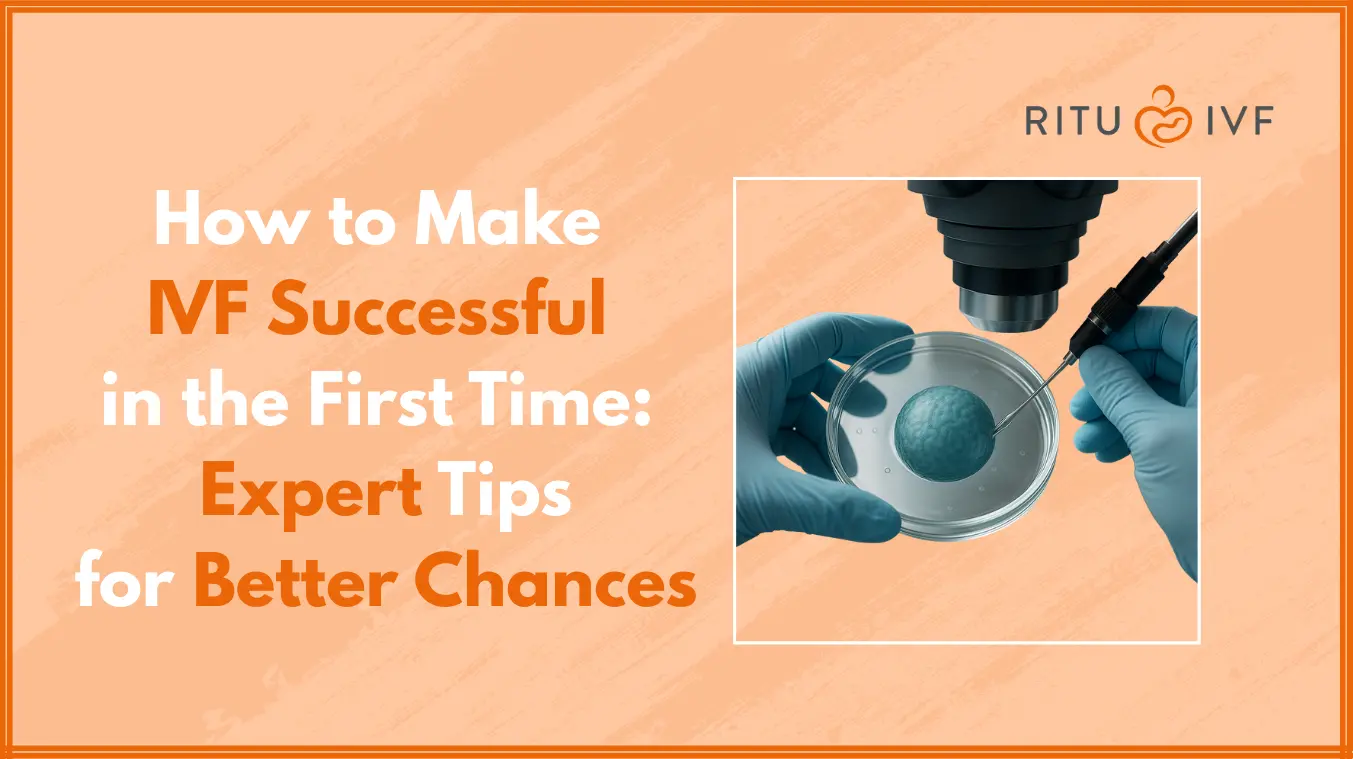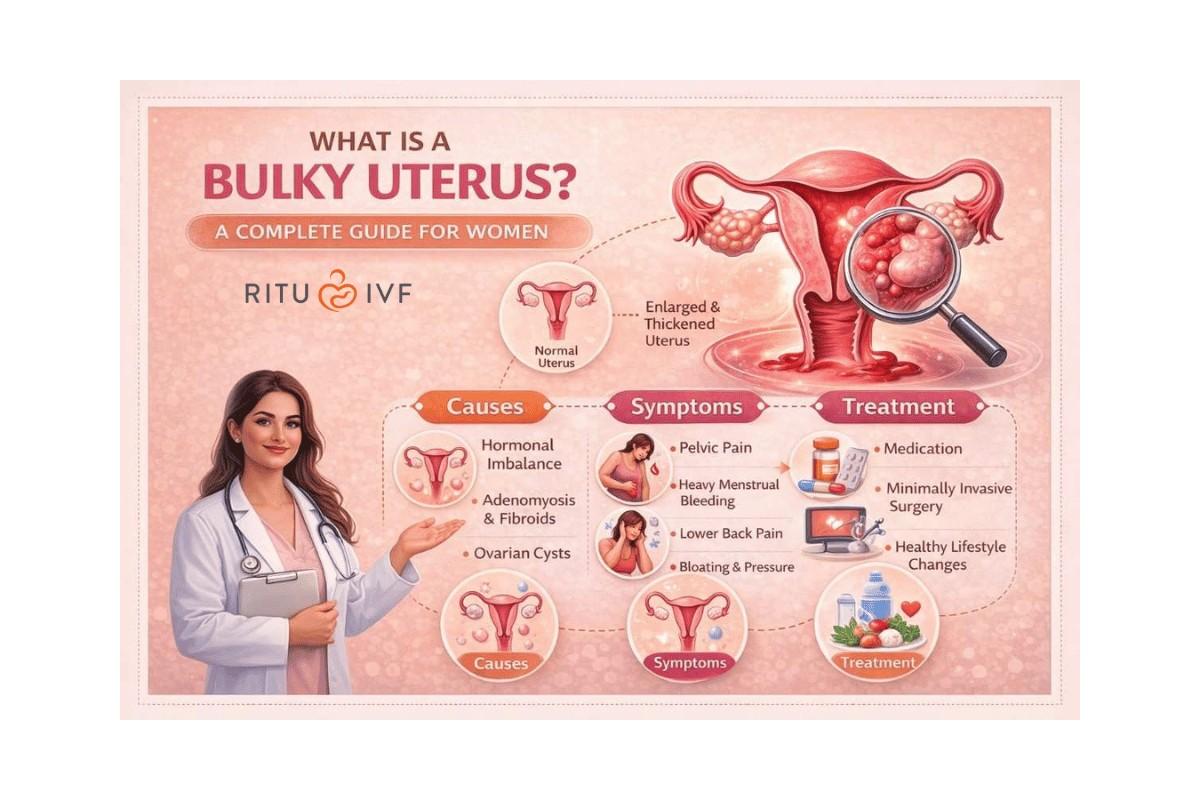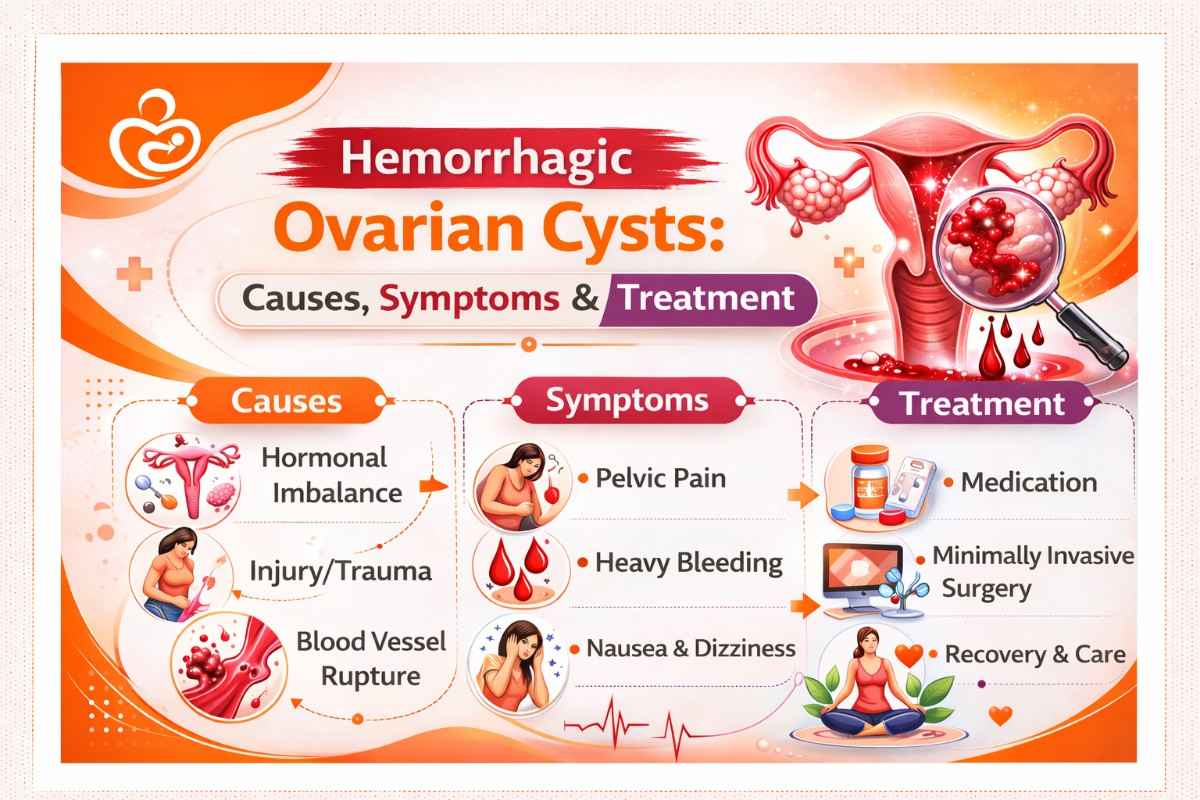When couples begin their journey with In-Vitro Fertilization (IVF), they often wonder how to make IVF successful the first time. Well, the IVF journey can be emotionally, physically and financially overwhelming, so maximizing your chances of success in the first cycle is essential. Although medical science plays a crucial role, preparation, lifestyle choices, and the right mindset also impact improving IVF outcomes. Determining ways to improve fertility health and aligning with medical protocols can make a difference in achieving a positive pregnancy result via IVF.
The good news is that many proven strategies can help increase your chances of success during your initial attempt. From selecting the right fertility clinic and following medical advice to making simple and powerful lifestyle changes for IVF, like exercise, nutrition and stress management, wherein each stage matters. In this blog, we will explore expert-backed tips for first IVF cycle success and practical approaches that will help couples to prepare your body, lifestyle to give you a chance of welcoming your baby sooner.
Factors to Consider for Pre-screening IVF Cycle Success
How to make IVF successful the first time? Couples need to undergo a pre-screening test before starting their IVF cycle. By assessing a couple’s health, fertility and lifestyle aspects in advance, doctors can design a suitable treatment plan customized to your needs.
What to do before IVF for success?
- Semen Evaluation: Several tests are performed to measure the quantity and quality of semen and sperm.
- Ovarian Reserve Testing: AFC (Antral Follicles Count) refers to the sum of follicles on both the ovaries. AMH (Anti-Mullerian Hormone) can assist in understanding ovarian reserve.
- Infectious Blood Test: This test includes the detection of Hepatitis B Core antibody, Hepatitis B Surface antigen, Hepatitis C antibody, HIV-1 and HIV-2, Syphilis, Gonorrhoea, and Chlamydia. However, infectious diseases can cause infertility, hence it is essential for a couple to get tested for the contagious panel before beginning with the IVF treatment.
- Uterine Lining Ultrasound: This is a standard method used to measure the thickness of the endometrium and rule out abnormalities in the uterus before the IVF process.
Read Also – What Is the Difference Between IVF and a Test Tube Baby?
Understanding the IVF Process
To know how to make IVF successful the first time, it is essential to determine the IVF process. It helps lay out clear expectations and reduces anxiety throughout the process. IVF involves a set of medical steps that boost fertility.
Embryos are inserted into the uterus after sperm and eggs are combined in a lab. Couples can grasp the parts of the process like stimulation, egg collection, fertilization, and embryo placement. This helps them feel ready, informed, and confident about their odds of IVF success rate first attemptaround.
- Preparation: The preparation phase typically begins two to four weeks before the start of the IVF cycle. It involves making small lifestyle changes to make sure you stay at your healthiest. However, your doctor may recommend a few medications to help regulate the menstrual cycle, which helps improve the chances of a successful IVF cycle.
- Stage 1: Day 1 of your IVF will be the first day of your period, which is typically closest to the scheduled IVF treatment. This stage normally takes one day.
- Stage 2: Next, you will begin fertility drugs that help in stimulating the ovaries, ensuring you ovulate effortlessly. It helps in releasing more eggs than usual. Three to twelve days may pass at this stage.
- Stage 3: You will receive an injection of “pregnancy hormone” or human chorionic gonadotropin (hCG). This hormone helps your ovaries release eggs. After 36 hours of inserting the injection, you will have to go to a fertility clinic where your doctor will focus on retrieving eggs to use in the further stage.
- Stage 4: Here, your partner or male donor will provide sperm during the egg retrieval stage. It takes one day. Your eggs will be fertilised within hours, and you will begin taking a hormone known as progesterone, which will help you prepare your uterus for a healthy pregnancy and reduce your chances of miscarriage.
- Stage 5: Your uterus will receive a healthy embryo less than a week following egg fertilisation. However, this is a non-invasive process, during which you may experience cramps or mild discomfort.
- Stage 6: After embryo transfer of 9 to 12 days, you have to visit the doctor. They check to see how well your body has accepted the implanted embryo. Additionally, you will need to undergo a blood test to assess your hormone levels related to pregnancy.

The Role of Fertility and Age in IVF Cycle Outcome
If you are wondering how to make IVF successful the first time? It is worth considering factors like age and fertility age for the VF process. The best age for IVF success is deemed to be under 35 for women, as they typically have healthy eggs and a higher egg count. It is a good idea to talk to fertility specialists to get a clear picture of your scenario, and considering both partners’ fertility health is essential.
An essential factor in increasing the likelihood of success in an IVF cycle is leading a healthy lifestyle. Considering your diet, weight, exercise and lifestyle choices such as smoking or drinking, can have a significant impact on your fertility health. These easy tweaks can boost egg quality and help sperm work better, which ups your chances of IVF working out the first time around.
Often, couples are in constant hassle with how to make IVF successful the first time? The objective is to determine your menstrual cycle and reproductive window, which will help you plan your IVF process.
Read Also – 7 Causes of a Bulky Uterus Every Woman Should Know
How to Increase Chances of IVF Success in Initial Attempt?
In addition to the testing and IVF process, there are essential aspects couples need to think about in preparation for the IVF cycle. The following IVF preparation tips for women may increase your chances of success on your first IVF cycle.
1. Choose the Right Fertility Expert
Choosing an experienced fertility expert or clinic is essential! A clinic that has advanced technology, higher success rates, and personalized treatment protocols makes sure that the entire IVF procedure is managed by experts.
2. Manage Stress During Stimulation and Embryo Transfer
The stimulation stage includes hormone injections to encourage the ovaries to produce several eggs. This can be physically and emotionally overwhelming, hence managing stress is vital. Practices like meditation, deep breathing exercises, and yoga are recommended to help manage anxiety and emotional preparation for IVF.
The time before and during embryo transfer is significant. Staying calm and positive can help the body embrace the embryo. Use relaxation strategies after embryo transfer as well. Staying busy with lighter activities can help you stay positive and focus your mind away from the waiting to see if it has worked.
3. Maintain a Healthy Weight
An unhealthy BMI can interfere with your pregnancy test, which may increase the likelihood of miscarriage and negatively affect psychiatric treatment outcomes. Therefore, consider consulting your doctor about what constitutes a healthy BMI, a suitable diet for IVF success, and the timelines for commencing IVF treatment.
In addition, it will improve your chances of succeeding with IVF overall and lower the risks of complications when you ultimately get a positive test. One essential factor linked to high BMI is increased risk, and in some cases, includes the inability to leverage anaesthetics, which is adequate for your IVF cycle.
4. Prioritize the Right Time for Embryo Transfer
The right timing for embryo transfer and implantation is critical. Usually, experienced clinics have advanced systems in place, such as Endometrial Receptivity Analysis (ERA) to determine your window of optimal receptivity to ensure that your uterus is ready for the embryo.
5. Avoid Strenuous Activities After Embryo Transfer
Light movement is beneficial, but doctors recommend avoiding vigorous exercise, heavy lifting, or sudden strain for a period after transfer. Women can focus on gentle walking and relaxation, as it helps keep their body calm and optimal for implantation without undue stress that would lead to a successful outcome in their IVF cycle.
Conclusion
In your journey to parenthood, determining how to make IVF successful the first time comes down to expert guidance, complete preparation and personalized care. By choosing your fertility specialist wisely, following the medical advice, and living a healthy lifestyle, you can increase your chance of IVF success. Connect with Ritu IVF for professional guidance and cutting-edge support to take the following steps towards becoming parents.
FAQs
1. How to make IVF successful the first time?
Choose an experienced fertility clinic or an experienced fertility specialist, undergo the advised pre-screening and adhere to the treatments that best engender the highest outcome for any IVF cycle.
2. Can stress reduce IVF success chances?
Yes, high stress levels can negatively impact fertility. Hence, it is recommended that women relax, stay calm, and seek emotional support.
3. How many embryos should be transferred for IVF success?
Your doctor will advise you based on your health circumstances; however, paying for the transfer of one or two quality embryos represents a good trade-off between success and risk.






